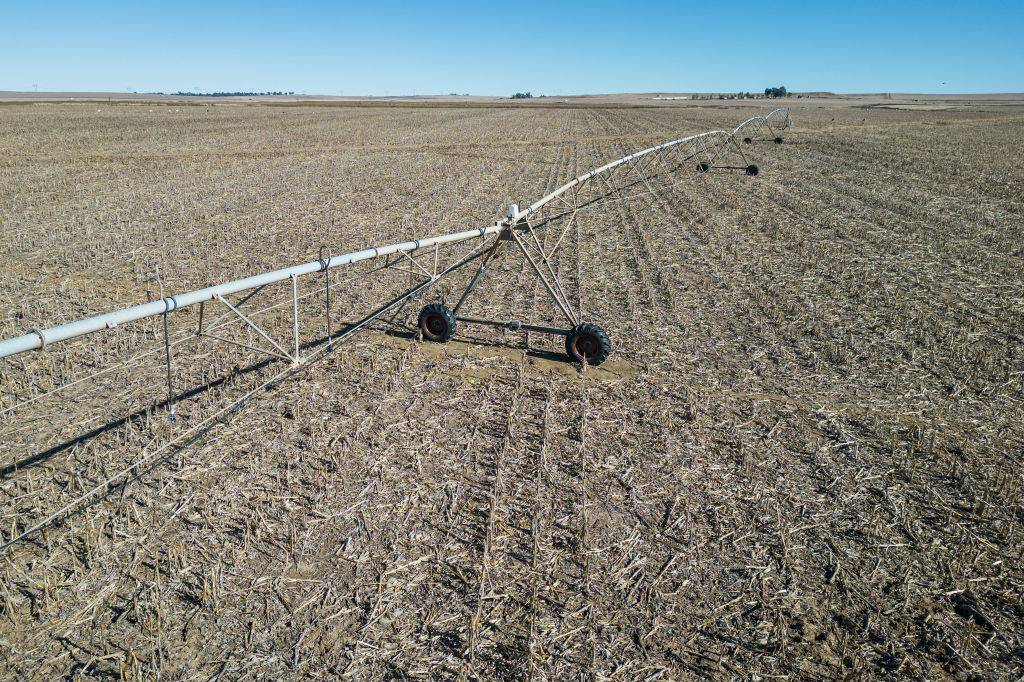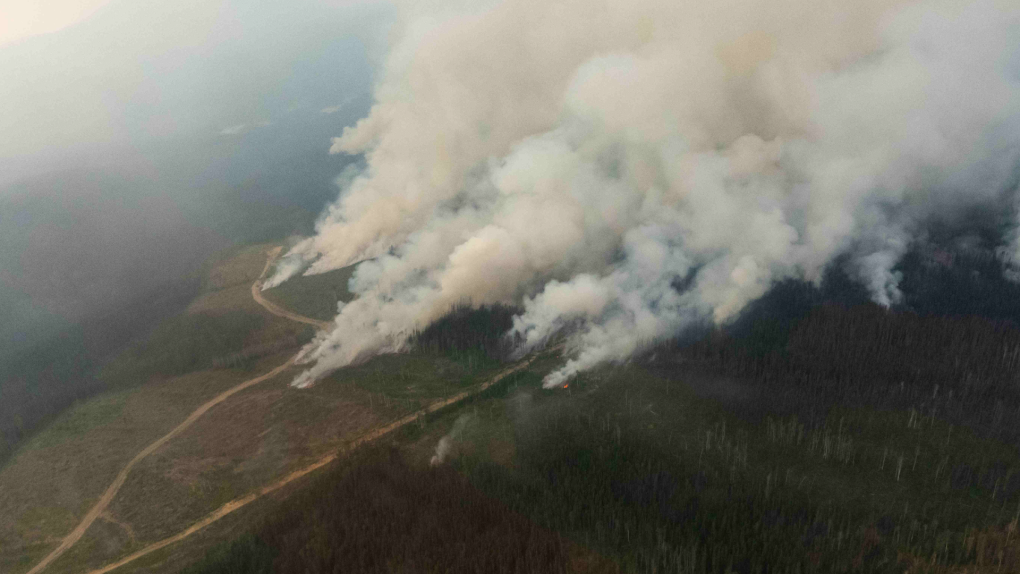Russian President Vladimir Putin attends a Brics Summit online in 2020. The world waits to hear whether he will attend this year’s summit in South Africa. (Photo by Alexey NIKOLSKY / SPUTNIK / AFP)
The Covid-19 pandemic presented Russia with a unique opportunity to amplify its great power status in Africa.
During the first weeks of the pandemic, Russia avoided its worst effects. A CNN report on 23 March 2020 asked the puzzling question of why Russia, a country of 146 million people, had fewer Covid-19 cases than Luxembourg, a country of 630 000 people. Russia capitalised on this fortuitous position through pledges of personal protective equipment (PPE) assistance to Africa and assertive support for Ethiopian Prime Minister Abiy Ahmed’s calls for debt relief to the global south.
By the summer of 2020, Russia’s coronavirus diplomacy strategy in Africa was at risk of backfiring. Russia’s PPE deliveries lagged other countries, such as China, Turkey and the UAE, and the Covid-19 pandemic swept across the country.
Russia’s controversial approval of the Sputnik V vaccine on 11 August, which occurred without phase three testing, gave Moscow a golden opportunity to arrest the trend of eroding soft power in Africa. While approvals of Russia’s Sputnik V vaccine in Africa have been incremental, Moscow began vaccine deliveries to the continent before Western countries, such as Britain, France or the United States, and avoided the inefficacies that undermined China’s vaccine rollouts.
Delays in vaccine deliveries undermined that initial success and sullied Russian soft power. Russia faced stiffened challenges from external powers, and also found itself mired in an uneasy balancing act between Egypt and Ethiopia on the GERD [Grand Ethiopian Renaissance Dam] issue.

Russia’s early warnings about the Covid-19 pandemic’s spread to Africa clashed with the narratives of African officials. On 11 February, Oleg Ozerov admitted that Covid-19 was present in Africa, which conflicted with the African Union’s denials of the virus’ spread and Ethiopia’s desire to dampen speculation about flight suspensions to China. By early April 2020, Russian and African officials were united on combatting Covid-19, and the Kremlin’s policies mirrored the prescriptions that RIAC [Russian International Affairs Council] stipulated.
As Russia saw its status elevated by much-publicised medical aid shipments to Italy and the United States in April 2020, it sought to play a decisive role in ameliorating Africa’s medical equipment shortage. On 21 April, the Russian foreign ministry stated that a number of African states had asked Russia for ventilators, testing kits and PPE, and noted Moscow’s track record of assisting African countries during natural disasters and helping Africa contain the Ebola epidemic’s spread.
On 28 April, Russia stated that it was processing requests for humanitarian assistance from Algeria, Egypt, Libya, Mauritania, Morocco, Sudan and Tunisia. Despite these pledges, Russia’s medical aid provisions fell short of expectations, as Russia focused its limited resources on containing cases at home and using medical aid as an instrument of leverage in Europe.
Russia’s negotiations with Algeria on medical aid abruptly unravelled. South Africa’s consultations with Russia on infection control on 4 April, which saw Cyril Ramaphosa praise South Africa’s “long friendship with Russia” and extol Russia’s aid deliveries to China, the US and Italy, did not result in medical aid. On 18 June, Ethiopian ambassador to Russia Alemayehu Aargau admitted that Ethiopia was still waiting for medical aid that Russia pledged to deliver on 16 April.
The rising tide of “vaccine nationalism” in the US and Europe during the first half of 2021, which saw Western countries refrain from mass donations to the global south, created more openings for Russia’s vaccine distribution to Africa. On 19 February, the African Union announced that the RDIF offered it 300 million Sputnik V doses. By 30 March, Sputnik V 2 was authorised by a total of fifteen African countries (Algeria, Guinea, Tunisia, Gabon, Ghana, Egypt, Angola, Congo, Djibouti, Kenya, Morocco, Cameroon, Seychelles, Mauritius and Mali). By 13 May, Sputnik V had also been authorised by Angola and Namibia.
Despite this continent-wide outreach, Russia’s Sputnik V deliveries continued to have a two-speed distribution in Africa. The Maghreb continued to lead the way with southern Africa trailing in second place, while the remainder of the continent embraced Sputnik V with greater caution.
Alrosa’s entrenched presence in Angola and Zimbabwe played a crucial role in facilitating Sputnik V vaccine transfers to southern Africa. In February 2021, Alrosa CEO Sergei Ivanov pledged to buy and donate Sputnik V vaccines to Angola and Zimbabwe, which would be distributed in mid-March. The pausing of AstraZeneca over blood clot concerns caused the Angolan authorities to vaccinate 40 000 people in mid-May with Sputnik V and Angola also was one of the initial countries to test the RDIF’s alternative one-shot Sputnik Light vaccine.
While Zimbabwe remained heavily reliant on Sinopharm and Sinovac, it also authorised Sputnik V for use on 9 March.

South Africa’s reluctance to authorise Sputnik V was another major blow to Russia’s vaccine diplomacy efforts in Sub-Saharan Africa. At the Brics summit in November 2020, which was hosted by Russia, Vladimir Putin emphasised the importance of collaboration between Brics countries against Covid-19 and urged all five countries to “join forces” in the mass production of vaccines.
Putin’s request for Brics vaccine cooperation did not gain traction, as Sputnik V was only authorised by India and was publicly rejected by Brazil’s regulators. Despite an urgent warning in the April 2021 issue of the South African Medical Journal, which implored South Africa to authorise Sputnik V to combat a third wave of infections and boost immunity among urban healthcare workers, South African officials moved slowly on authorising the Sputnik V vaccine.
On 19 February, South Africa’s health ministry made a request for Sputnik V and Denis Logunov, the deputy head of the Gamaleya National Center for Epidemiology and Microbiology, subsequently emphasised the vaccine’s effectiveness against the South African Covid-19 variant.
On 9 April, Alexander Gintsburg, the lead scientist behind Sputnik V, conceded that the vaccine was less effective against the South African variant but admitted that the decline in antibody response was significantly lower than Western- made vaccines. In response to these reports, South African Health Minister Zweli Mkhize announced on 28 April that South Africa would order 10 million doses of Sputnik V and expressed optimism that the regulatory bodies would approve the Russian vaccine. Despite these pledges, the Sputnik V vaccine did not arrive in South Africa.
Vladimir Shubin hoped that South Africa’s large immunocompromised population, which included a 19% HIV-Aids prevalence rate, would lead to a swifter authorisation of Sputnik V but decried administrative inefficiencies and a Western smear campaign as a cause for the delay. In South Africa, the prevailing view on Sputnik V follows a different narrative.
Gustavo de Carvalho dismisses the notion that South Africa has an aversion to Sputnik V because of its Russian origins, and contends that South Africa’s vaccine policy is driven by technical considerations. De Carvalho earmarks two reasons for South Africa’s delayed authorisation of Sputnik V.
First, South Africa’s pharmaceutical industry had established links with Johnson & Johnson, which restricted their ability to strike deals with Sputnik V. Second, Sputnik V’s potential ineffectiveness against the South African variant of Covid‑19 was a serious concern, as South Africa had been forced to send back AstraZeneca vaccines for this reason.
South African academic Theodor Neethling contends that South Africa rejected Russia’s initial three efforts to market Sputnik V because the vaccine was not authorised for use by the WHO. Notwithstanding these rationales, the gap between South Africa’s rhetoric and policy towards Sputnik V appears to be creating a new source of friction with Russia.
By the spring of 2021, concerns mounted about Russia’s involvement in price-gouging and serious discrepancies between the pledged and delivered supplies of vaccines. They also coincided with growing disquiet in the continent of Moscow’s commercial practices.
In November 2020, Rwandan environmental groups and civil society organisations pushed back against Rosatom’s nuclear energy forays in Rwanda. Frank Habineza, the leader of Rwanda’s opposition Democratic Green Party, spearheaded this charge, warning, “Living near a nuclear energy plant is like living near a nuclear bomb, which can explode and cause destruction of life and property for the nation and its neighbouring countries.”

These controversies have not prevented African countries from signing new commercial deals with Russia in the public health or nuclear energy spheres. Sputnik V’s new one-shot Sputnik Light vaccine is gradually gaining traction in Africa, as it was approved for use in the Republic of Congo in June 2021 and was green-lighted in Egypt in September 2021.
Russia and Zimbabwe’s MOU on nuclear energy production, which has no binding commitments, suggests that Russian mega-projects still have support from anti-Western or economically isolated African countries. However, they reinforce the image that Russia is opportunistically seeking commercial profit or is actively exporting products that are harmful for their African target markets.
As Russia continues to make controversial forays into the telecommunications sector, which included the sale of “intelligence transport monitoring” surveillance systems to Uganda in July 2021, these doubts will likely continue to grow.
Of even greater short-term significance to Russian companies could be Moscow’s perceived unreliability as a commercial partner. While Russia’s energy, arms and mining projects in Africa have a poor track record of success, as they are often signed from over-ambitious or informal targets, mishaps in the public health sphere are especially deleterious to its image. […]
Russia’s vaccine diplomacy campaigns have largely occurred in a unilateral rather than a coordinated fashion but have nevertheless profoundly impacted Moscow’s standing in Africa. In Western countries, there are sharp divisions of opinion on the viability of Sputnik V transfers. France was the first country to sound the alarm about Russia’s vaccine diplomacy in Africa.
On 18 February 2021, Emmanuel Macron urged European countries to distribute 5% of their vaccine supplies to Africa to prevent Russia and China from gaining a decisive geopolitical advantage.
On 23 March, White House press secretary Jen Psaki claimed that Russia and China were using vaccine deliveries to advance their geopolitical goals. However, US officials presented a more ambiguous picture. Former US Secretary of State for African Affairs Tibor Nagy quipped that when it comes to public opinion, “health diplomacy is much less effective than building a stadium”.
Nagy noted that the US has spent $100 billion on healthcare in Africa since 2000, which was largely directed to fighting HIV-Aids, but this has not matched China’s conversion of infrastructure spending into soft power.
Although Russia’s vaccine diplomacy in Africa has not been an unbridled success, the Kremlin-aligned commentators have highlighted these vaccine deliveries as proof of Russia’s rising geopolitical influence.
In a November 2020 International Af fairs article, political scientist Andrey Kadomtsev claimed that an “officially announced vaccine race is becoming an essential element of interstate rivalry” and “advanced medical developments embody the most important components of national power and prestige”. In spite of this emphasis on geopolitical contestation, Kadomtsev insisted that Russia did not distribute vaccines to Africa and other regions of the global south on a quid-pro-quo basis.
These comments sparked a fierce backlash from the Kremlin and caused Russia to emphasise win-win cooperation in the vaccine diplomacy sphere instead of Moscow’s competitive advantage. In response to Psaki’s comments, Lavrov stated on 23 March that allegations of Russian vaccine diplomacy were “absolutely not true”.
On 26 March, Dmitry Peskov condemned Western insinuation that “Russia and China are engaged in some vaccine war and abuse the coronavirus pandemic and vaccines as a certain leverage”.
An RIAC article of 5 April reiterated these criticisms of Macron’s comments and claimed that Russia’s Sputnik V vaccine deliveries amounted to “people’s diplomacy”, which is interstate humanitarian cooperation without political undertones and is akin to US public diplomacy. The report justified this view by stating that Sergei Lavrov’s rhetoric at the Russia-Africa Partnership Forum linked Russia’s medical aid to Africa to “principles of humanism and mutual assistance” rather than competition.
Russia in Africa by Samuel Ramani, Jacana Media, R380.





















Discussion about this post